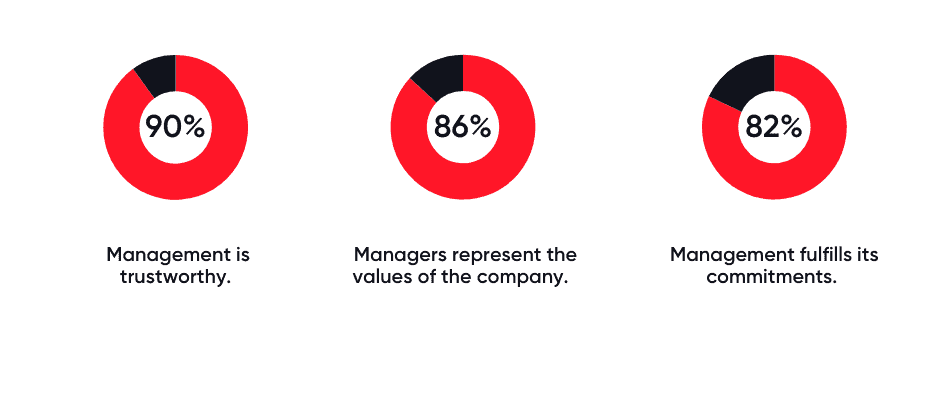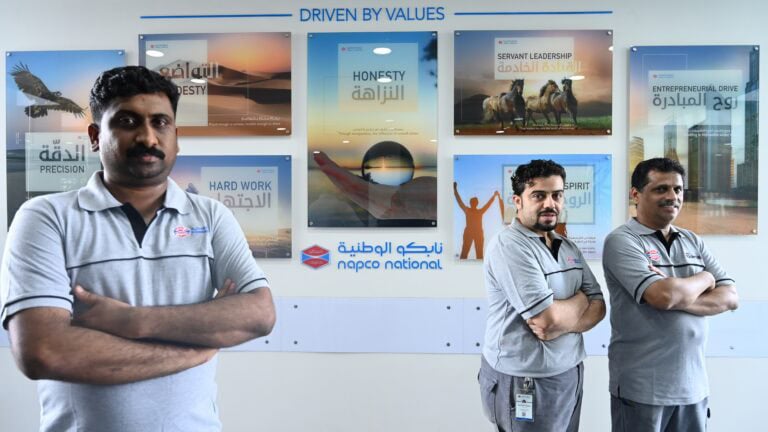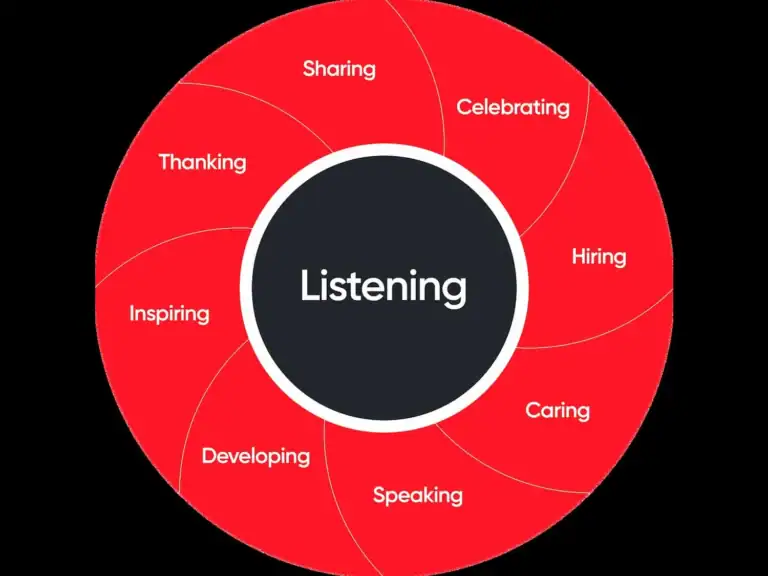How can UAE organizations develop integrity in their workplaces?


Jana Saab
As an Emirati leader, are you working to create a successful organization?
Integrity is now essential to standing out in the competitive market; it is no longer an option. It can benefit and help your organization to become a Great Place to Work® in the UAE, where transparency and trust are highly valued. It is stated that organizations with strong ethical cultures can outperform their competitors by up to 8x.
The Great Place to Work® Trust Index© Survey revealed that 90% of the employees of the certified organizations who consider integrity as a core value in the UAE feel that their managers can be trusted, 86% of them believe that their leaders portray the values of their workplace, and 82% consider them as being committed to their work.

Let’s explore the effective strategies that help UAE organizations develop integrity in their workplaces. They can boost employee satisfaction and trust, improve your company’s reputation, and attract top talent.
Build integrity-based communication channels.
Transparent communication is the path to a prosperous work environment. Setting up regular meetings, exchanging ideas, and discussing challenges help build strategic plans for the organization. Also, encouraging two-way communication enables employees to feel comfortable expressing their ideas. Thus, this type of communication creates trust between employees and their managers.
Moreover, when management sets clear expectations through open trusted communication, this assures that everyone within the organization works based on a set of ethical standards and maintains integrity. It also enables employees to offer insights and recommend improvements, which facilitates continuous feedback that is crucial for identifying and solving integrity issues and ensuring an ongoing enhancement of integrity practices.
The results obtained from the Trust Index™ Survey ensure that 84% of the employees in the winning Workplaces in the UAE believe that their management sets clear expectations, and 86% of them feel that they can easily communicate with their managers.


Develop your organization’s reputation through leadership and integrity
Employees admire leaders that demonstrate integrity, including honesty, dependability, and ethical decision-making. This builds mutual respect and trust.
Organizations with transparent leadership experienced a 25% rise in creativity. A research study indicates that when leaders “walk the talk,” it increases employees’ happiness. Highly engaged employees are 12x more likely to have a trusted leader, ensuring more committed teams. Strong connections are also produced by fairness; leaders that treat all members of the team equally encourage cooperation and a positive team environment by consistently recognizing hard work.
Integrity influences reputation through attracting top talent, enhancing relationships with clients, and cultivating trust with employees. According to a survey, 83% of managers believe that success depends on having an excellent ethical reputation. Research indicates that a positive work culture and integrity in leadership are linked on a global level. Integrity is the catalyst for a productive workplace, enabling leaders and their groups to achieve their goals.
For more illustration, a leader’s consistency in work and decisions creates confidence within employees. This is shown in the Best Workplaces™ in the UAE, where managers’ actions match their words, and they appreciate their employees.
Highlight the importance of collaboration.
Creating a culture of integrity is essential for fostering cooperation among staff members in the organization. This is the reason why diverse viewpoints on moral dilemmas are feasible through open communication and teamwork. When facing a challenge, employees are free to suggest ethical solutions.
Organizations in the UAE with cooperative cultures reported a 50% increase in effective ethical issue solution compared to those with less collaborative environments. In addition to enhancing moral decision-making, this cooperative strategy fosters respect and trust among team members.
GPTW’s studies showed that 78% of the employees in the winning workplaces in the UAE feel that their managers take their decisions into account and 84% of the employees collaborate at work.


Empower ethical decision-making.
Employees prefer organizations that have a remarkable ethical reputation. Setting up an ethical framework indicates a dedication to moral processes, recruiting, and maintaining the best employees who share these values. Ethical systems provide an organized strategy for managing challenging circumstances, which ensures ethical considerations are prioritized. They also help executives identify potential risks, making them essential in guiding responsible decision-making.
Furthermore, frameworks ensure that everyone in the organization is aligned when it comes to ethical decision-making by reducing ambiguity, enhancing transparency, and promoting responsibility. A strong ethical framework not only sets the organization for future growth, but it also empowers leaders to face problems with confidence, balancing responsible and profitable actions. Setting standards reduces the risk of legal difficulty, financial penalties, or reputational damage from unethical decisions. They ensure adherence to applicable legislation and industry standards by protecting the company’s integrity and success.
Are you ready to take your organization to the next level?
In a nutshell, cultivating integrity in the workplace boosts collaboration, leadership, and ethical decision-making in your organization. Subscribe to our newsletter to learn more about creating the best workplace.
Here is how you can transform your workplace culture:
- Explore the Best Workplaces™ list of the organizations that foster integrity: Identify the best practices that these companies utilize to enhance their employees’ performance.
- Create a reward system to support integrity behavior: Appreciate employees who possess integrity and value their efforts.
- Evaluate regularly your company’s work culture: Conduct surveys and collect feedback to assess and develop your organization’s environment.
All in all, when considering these steps, you can create a workplace culture, where integrity, transparency, collaboration, leadership, and communication can improve.
Get your company Certified™️

HR Trends in the Middle East 2026
What did 2025 teach us about people management, and what is on the outlook for 2026? From the disruptive forces of AI and skills-based hiring

What Makes Napco a Great Place To Work®? It Starts with Family Spirit and Ends with Impact
What Makes Napco a Great Place To Work®? It Starts with Family Spirit and Ends with Impact About Napco National Napco National has been part of the Saudi industrial landscape since 1956,

9 High-Trust Leadership Behaviors That Build Great Workplaces
Caring, Celebrating, Developing, Employee Experience, Hiring, High-trust leadership, Inspiring, Leadership & Management, Listening, Managerial Communication, Sharing, Speaking, Thanking Every employee should take these behaviors to heart whether or not they are people leaders. I often get asked

The Evolution of Workplace Culture: Why It Matters More Than Ever in 2025
One universal workplace experience is the emotional imprint left by an organization—its energy, trust, and sense of belonging. Although experts may agree on what constitutes

How Purunity Embeds Goodness into Work and Culture
People go where there is pride in the work they do. At Purunity, this sense of pride stems from our core mission: driving innovative and

Powerful Strategies to Cultivate DEI in Omani Workplaces
DEI is not only a buzzword! Developing a diverse, equitable, and inclusive work environment shows that leaders care about their employees, appreciate, and respect their
